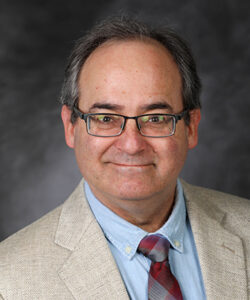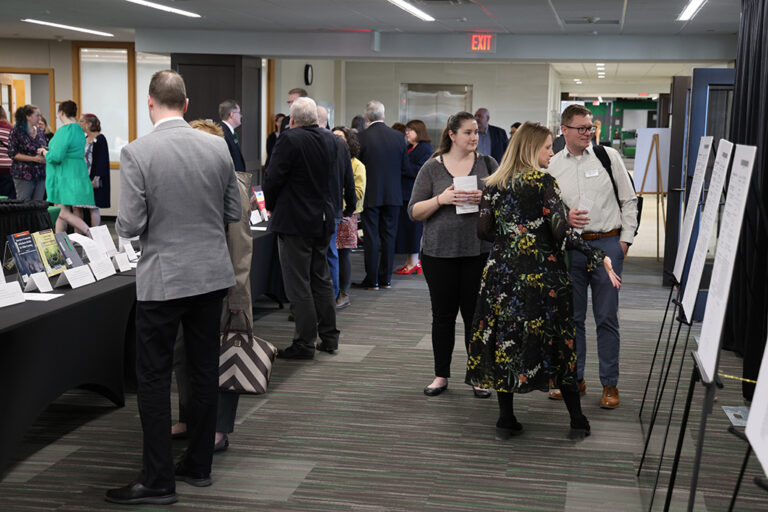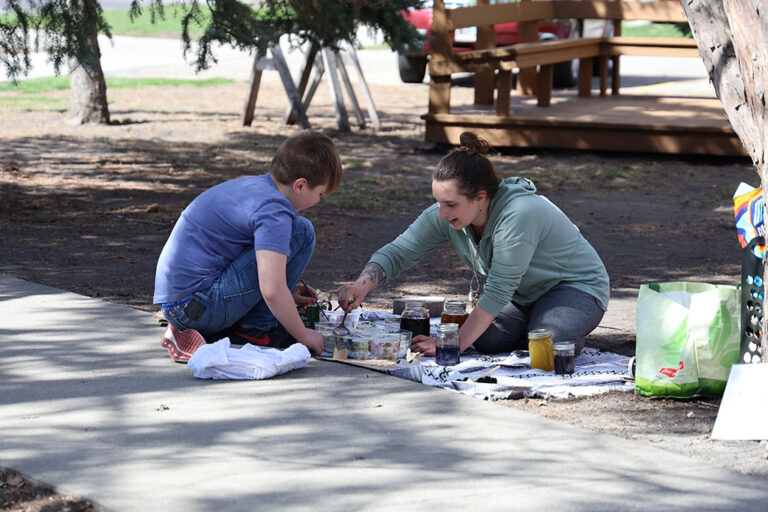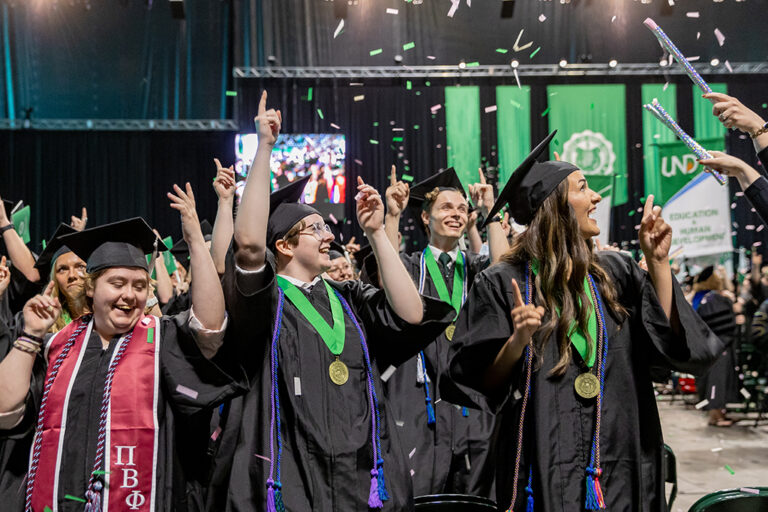As UND progresses, Essential Studies evolves
Essential Studies already equips students for success, panelists at a UND seminar agreed. Now, here’s how it can do even better
A UND seminar on Wednesday provided a map: a map to the future of Essential Studies.
But not a road map, with the routes clearly marked.
Instead, the seminar hosted by the UND Task Force on the Future of Education provided a topics map: a map of the subjects that Essential Studies, the liberal-arts core of a UND undergraduate degree, likely will want to introduce students to in years to come.
These include digital literacy, leadership, research and other skills that are becoming, well, essential for students to master, the UND faculty on the seminar’s panel agreed.

“Our plan today is to talk about some of the bigger-picture issues that may be facing students in a post-COVID world,” said Karyn Plumm, Vice Provost for Student Success, Director of Essential Studies and Co-Captain of the UND Strategic Plan’s Goal 1: Provide a Strong Liberal Arts Foundation.
“We want to share some of those ideas, some of the things that we’ve heard from different institutions and what they’re thinking about.
“And we wanted to discuss with all of you the things that faculty and we as a campus find important for our students in general education in the next five to 10 years.”
The Task Force on the Future of Education, an initiative launched by UND Interim Provost Debbie Storrs, is charged with educating the University community about the big issues facing UND and higher education today. Hosting the seminar on Wednesday were Task Force co-chairs Jeff VanLooy, associate professor of Earth System Science & Policy, and John Shabb, associate professor of Biomedical Sciences.
And besides Karyn Plumm, the panelists were Brad Rundquist, Professor of Geography, Dean of the College of Arts and Sciences and Co-Chair of the UND Strategic Plan’s Goal 1; Michael Dodge, Director of Graduate Studies in the Department of Space Studies and past chair for Essential Studies; and Brooke Solberg, Department Chair for Medical Lab Sciences and UND’s current chair for Essential Studies.
Plumm began by giving a brief overview of Essential Studies.
At UND, undergraduates must complete 39 semester credits to fulfill their Essential Studies requirement, Plumm said. Each course focuses on at least one of six learning goals: Critical Inquiry & Analysis, Quantitative Reasoning, Written Communication, Oral Communication, Information Literacy and Intercultural Knowledge & Skills.
In addition, “we also have some requirements that students gain Breadth of Knowledge, and that they focus on some of the Learning Goals a bit more than others,” she noted.
And as the Essential Studies webpage notes, a central idea behind Essential Studies is to equip UND graduates with “the essential skills employers are seeking.”
New skills for a new era
But education is changing in the 21st Century, and careers are demanding additional skills, the panelists said. And at this point, while it’s not clear exactly how UND’s Essential Studies program will accommodate those skills, the odds are any reforms to the program likely will be made with these realities in mind.

One new reality that has developed since Essential Studies’ founding is the greater diversity among UND students. And not just diversity of race and ethnicity, although that’s increasing as well, said Michael Dodge.
In addition, UND students these days also vary tremendously by age, income and educational-and-professional backgrounds, Dodge said. In fact, “higher education itself is becoming increasingly diverse in this way.”
That matters, especially when it comes to assessing incoming students’ existing skills. For example, suppose a successful novelist enrolls in pursuit of an English degree. Should that person still be required to take classes in line with Essential Studies’ Written Communication goal?
Then there’s the fact that many working professionals these days take classes in pursuit of certificates or licenses, not degrees.
“Flexible approaches might be the best way to go about this, as we design new programs,” Dodge said.
Meanwhile, for all of the above students, including those seeking certificates or licenses as well as traditional undergraduates, digital literacy is becoming an ever-more-important skill, Brooke Solberg said.
And this idea “goes beyond just knowing how to use technology,” she noted. “It’s also about understanding how technology works.”
For example, “it’s common for our students to ask Alexa a question,” Solberg said. “But do they know how Alexa comes up with an answer? … Do they understand their digital rights, including things like privacy and security? Or have they considered the ethical or mental-health implications of technologies?”
Mark Hagerott, North Dakota University System chancellor, spoke in depth about technology’s ethical dilemmas in the Task Force’s first seminar a few weeks ago, panelists pointed out. And that’s the kind of topic Essential Studies in the future may want to take note of.
Here’s another: human literacy, meaning the ability to understand and get along with other people. For example, “teamwork tends to be one of the top things that employers mention, when they explain what they’re looking for in their employees,” said Karyn Plumm.
And along those lines is the topic of wellness, which actually is making its way into Core Curricular programs at some of UND’s peer institutions. “We’ve seen other institutions doing things like having a learning goal for resilience, or for agency or self-confidence,” Plumm said.
“Some were actually including these in the form of academic credits, in courses on positive psychology, courses on happiness, courses on health and wellness,” she continued.
“The reason they’re doing this is because higher education is seeing a rise in mental health concerns and issues.” That’s happening at UND as well, suggesting that “taking a look at how our students can be mentally healthy” could boost students’ success in both college and life.
Internships, clinicals and careers
One change that a UND student from the 1990s would notice is the growth of experiential education. These are the internships, cooperative education and other programs that give students practical experience, much like the clinical work that has long been a part of student doctors and nurses’ schooling.

Today, some students in Arts & Sciences and other colleges are among those who get practical experience, Brad Rundquist noted. “I’m thinking about the North Dakota Digital Atlas project: it’s a very interdisciplinary course, brings students from a variety of backgrounds and perspectives to work on a project-based outcome that’s shared with the larger world, and in fact, focuses on the state of North Dakota, which I also think is an important thing to do,” he said.
UND’s new contract with Riipen (pronouced “ripen”), a company that helps faculty create and embed work-integrated learning experiences directly into their courses, is part of this trend. Students welcome the skills they learn and the contacts they make from these experiences, and employers appreciate the teamwork and leadership abilities that students develop.
So, perhaps incorporating these concepts into Essential Studies “would help us with retention of students, and possibly with some recruiting of students, who’d know that they could have this type of experience at UND,” Rundquist said.
Undergraduate research is another area that’s proving increasingly valuable to students and is worth focusing on, he suggested.
Of course, despite these and other ideas for reforming Essential Studies, some fundamentals still apply, Plumm and others noted. For example, schools everywhere wrestle with convincing students of Essential Studies’ value – that the classes are not just boxes on a list to be checked off.
Then there are issues of equity: do the requirements put students from underrepresented groups or disadvantaged backgrounds at a disadvantage? And assessment: how should UND assess not only the skills that students come to college with, but also the skills they graduate with?
Last but certainly not least, how will the University ensure that all this focus on career preparation doesn’t shortchange the liberal arts?
Here’s the answer to those and other questions, Dean Rundquist said: Reforming Essential Studies must be a faculty-driven process. “That means the faculty must be involved, and the changes must make sense from their perspective,” he said.
Karyn Plumm agreed. And she’s optimistic, she said, because “I really do see among our faculty an interest in helping students succeed. I think that we all have that in common; and if we can keep that as a goal, I’m not sure that the issues we’ve mentioned should be a barrier.”



